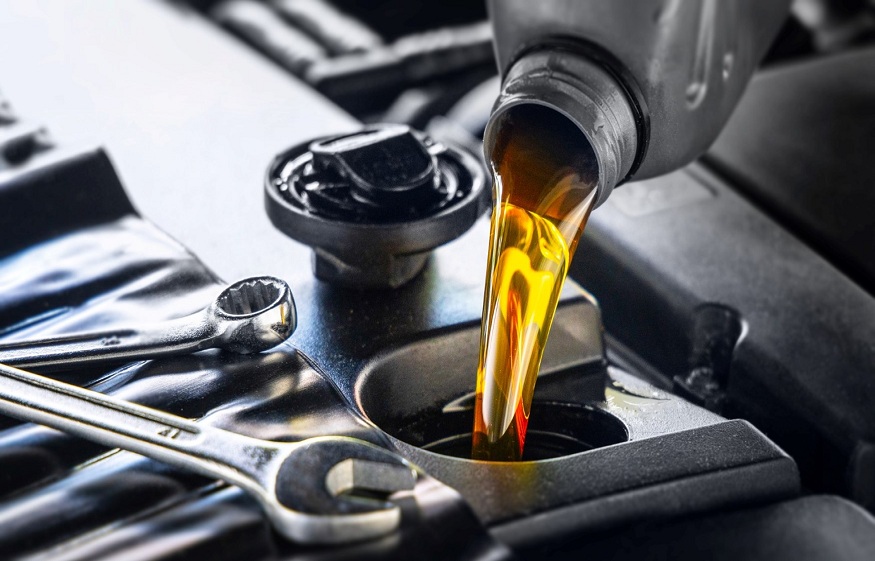5 Reasons Why Using the Right Hydraulic Oil is Important
Hydraulic fluid plays a crucial role in operating many machines and equipment. It lubricates, dissipates heat, and carries away contaminants. An excellent hydraulic oil should be able to perform all of these functions efficiently so that your equipment runs smoothly. The suitable fluid can help to reduce performance problems, downtime, and maintenance costs.
It Reduces Wear
Hydraulic oil helps lubricate machinery by forming a protective film on metal surfaces. This reduces friction between moving parts, minimizing wear and extending equipment life. The right hydraulic oil will have a viscosity suited to your equipment’s requirements and operating temperature ranges. This ensures a reliable start at cold temperatures and long-lasting lubrication. Choosing the wrong hydraulic oil is not only costly, but it can also fail down the road. The correct hydraulic oil Charlotte, NC should have high oxidation stability to help prevent fluid decomposition products from developing and causing abrasion and corrosion problems at high temperatures. It should also have low compressibility to reduce servo failure, efficiency loss, and cavitation.
It Reduces Foam
Hydraulic oil comprises mineral oils and additives that help it flow better, lubricate, and protect components. It’s used for various purposes, including powering air compressors and air tools and in agricultural equipment such as tractors. It’s essential to choose the right hydraulic oil for your application. It should have good temperature stability, which means it will retain its properties even when exposed to varying temperatures. It should also resist oxidation, which can lead to sludge formation that plugs oil filters and causes servo valves to stick. It should also have an anti-foaming agent to prevent foaming that can cause entrained air bubbles that can deteriorate the fluid’s barrier and promote wear. It should also be formulated with antiwear and rust protection additives to help extend the life of your equipment.
It Reduces Oxidation
Using the right hydraulic oil can reduce oxidation caused by oxygen combined with hydrocarbon molecules. Oxidation affects the service life of a lubricant, causing oil deterioration and sludge formation. Increasing fluid oxidation and stability can improve seals’ performance and help reduce oil leakage into groundwater. This can lead to savings in both maintenance and environmental costs. Hydraulic oils can be enhanced with active additives such as viscosity index improvers, pour point improvers, anti-oxidation additives, and defoamers. These can also be combined with surface-active additives such as wear inhibitors, friction modifiers, rust inhibitors, and detergents to ensure high functionality.
It Reduces Water
Hydraulic oil is a special fluid that transmits power and lubricates hydraulic systems. It is designed to resist oxidation, maintain viscosity and provide good anti wear protection. The right oil can also help reduce water contamination in hydraulic systems. This is due to how it changes temperature and relates to its viscosity. When temperatures go up, the oil will have a lower viscosity than when they go down. This can be helpful when a system needs to work effectively over a broader range of temperatures. Many people choose a high-viscosity oil out of habit, but this can be counterproductive to your efficiency and costs. Try choosing an oil with a lower viscosity instead to help reduce energy loss.
It Reduces Cavitation
Hydraulic oil is used in many applications, including on cruise ships, to reduce roll. The right hydraulic oil is crucial for running these systems smoothly and avoiding cavitation. Cavitation occurs when air bubbles form within the oil. These air bubbles can either collapse or explode, causing damage to the pump. Fluid temperature is also a factor in cavitation formation. High temperatures can allow bubbles to form at low pressure.
On the other hand, low temperatures can increase the oil’s viscosity, preventing it from flowing into the pump. This can lead to poor lubrication, which can cause metal-to-metal contact and premature wear. Using the right hydraulic oil to withstand a wide range of conditions and temperatures is essential.



